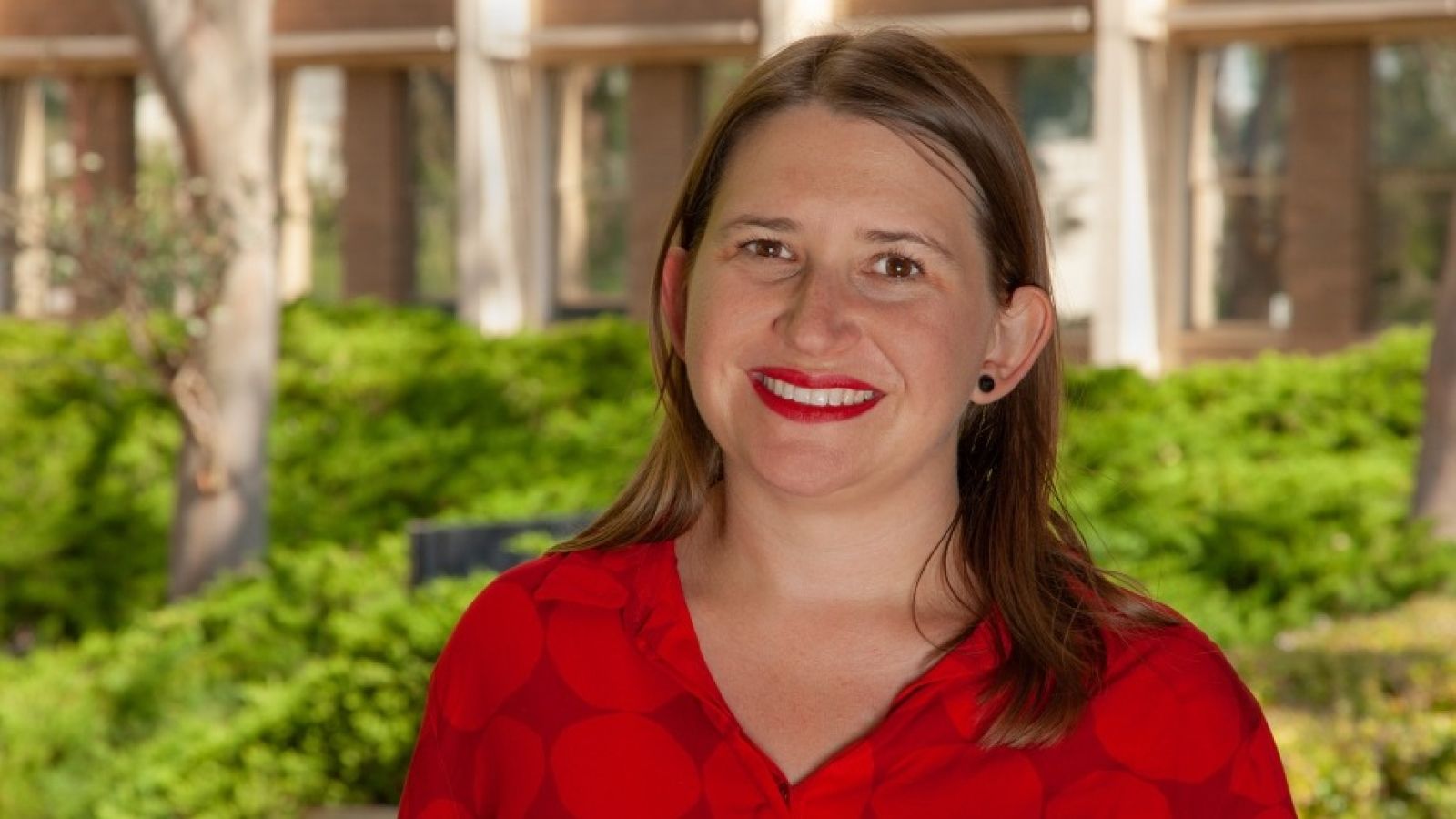From Fenner Hall to the halls of Parliament: Natalie Barr

Global Institute for Womens Leadership COO Natalie Barr (Photo by Adam Spence/ANU)
From Fenner Hall to the halls of Parliament, Natalie Barr’s journey from ANU to the corridors of power let her experience first-hand some of the most momentous times of change in Australian political history. Now she believes is the time for another change, an urgent change in the way we understand and encourage women’s leadership throughout society. And she’s returning to ANU to help make that change happen.
Natalie Barr was studying a Dean’s Scholar Advanced Bachelor of Arts degree in history and politics at the University of Wollongong, when one day she came across a poster in the corridor. The poster was for ANIP, the Australian National Internships Program at ANU, a unique internship program that for 28 years has given students from across Australia and the world the rich and rewarding opportunity to undertake meaningful research and policy work while building professional networks.
ANIP was for Natalie a pathway to Canberra, to ANU and to a career in politics.
“I just fell in love with Canberra, and wanted to do everything I could do stay in Canberra, stay in politics and stay at the ANU.”
ANIP afforded Natalie the chance to experience politics and policy first hand, working in the office of shadow minister Wayne Swan. Living in Fenner Hall with other ANIP interns from across the country, it also provided a valuable opportunity for camaraderie and networking.
“It was amazing, it adds such depth to your University experience,” Natalie recalls fondly. “At the time it was just sharing an experience with great friends, but later you realise it was networking too, and those people you meet have a big influence both at the time and in the future.”
Natalie enjoyed the experience so much that after graduating from Wollongong, she returned to Canberra and to ANU undertaking honours with Professor John Warhurst and entering the Australian Public Service as a graduate in the Department of Education.
“My mum and dad were both teachers, my dad and grandfather were principals. So it was a big influence, education has always been important in my family,” Natalie says.
Education would become a significant theme in Natalie’s career, both in over 10 years with the Department of Education and in the Ministerial Wing of Parliament where she worked on issues including the ABC Childcare collapse, National Indigenous Education Plan, and NAPLAN.
Working in the corridors of power in Parliament, there is a sense that you are witnessing history, and are enjoying a privileged look at how events and decisions that shape our lives and society take place. Natalie enjoyed such a view during two elections campaigns including the remarkable 2007 campaign that marked an end to the Howard Government’s 13-year marathon. And in three years working in Julia Gillard’s office, first in the education portfolio, she played a part in important events like the Davos Conference. Yet perhaps most memorable for her was the night Julia Gillard ascended to the Prime Ministership.
“We were in her office, and everyone was looking for chargers, people running in and out. Come 1 or 2 am, I was just sitting against the wall of the office taking in what had happened.”
Natalie has always been passionate about women’s issues. She proudly recalls the time she questioned why girls in School were not allowed to wear shorts, become the SRC President and successfully overturning the unfair dress code. And coupled with a career focused on the value of education, she brings that experience and drive to her new role as Chief Operating Officer of the Global Institute for Women’s Leadership at ANU.
“I think women’s rights and women’s equality has the potential to make a really big difference to the future of disadvantaged children in Australia,” says Natalie. “If the institutions of power, not just politics but business and other things, look a little more like what the population looks like, chances are they will make policies and decisions that serve the whole population.”
The institute exists to encourage vital research into how organisations can make tangible and meaningful change that welcomes and encourages women’s leadership, and providing education that affects change at a larger system level, rather than an individual level. The Institute is established under a five year agreement between ANU and Kings College, and Natalie feels buoyed by both the long term commitment and culture offered by ANU.
“I think it’s great having a long term commitment from the University to support our work. The work really is quite urgent. And I’m enjoying the opportunity to work in the higher education sector and to work on women’s issues, to be creative, to identify opportunities and run with them here.”
For Natalie there are a many well-known women, who are role models in leadership. But it is those everyday role models who have been the most valuable throughout her life.
“Women I’ve worked with where life is messy, they have a couple of kids, they have responsibilities, but they make it work. They show you don’t need to minimise what is happening in the rest of your life, you can be a full person still completing responsibilities.”